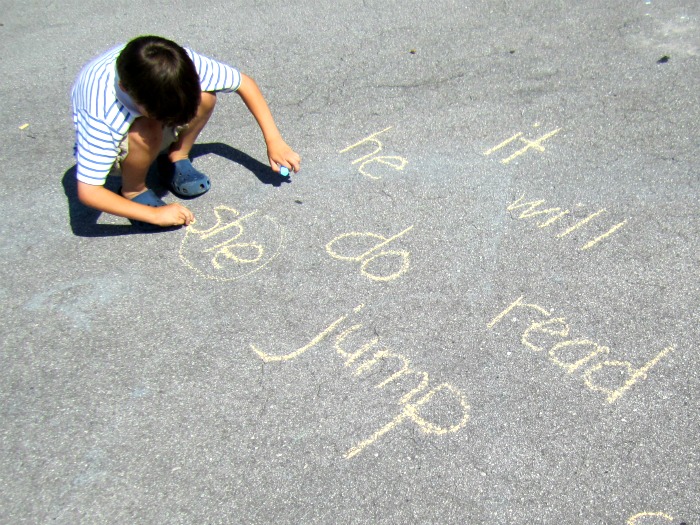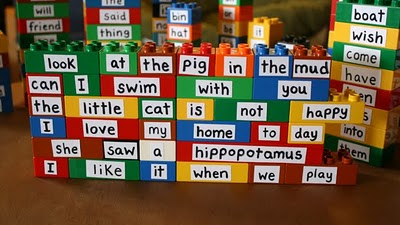7 Games to Build Reading Skills for Kids Who Can’t Sit Still
All of the data points to what many parents and educators already know to be true. Children who have speech and language delays or disorders often struggle to build or maintain reading skills. If you are the parent of a child who faces literacy challenges on top of other communication struggles, and your child just doesn’t seem able to sit still long enough to look at the cover of a book, you might be feeling that reading proficiency is a far away dream. Whether your child is a kinesthetic learner or always on the move because of a learning or behavior challenge, there are options that satisfy that need for movement, but still build reading skills. Try these games that let kids move – and encourage them to read at the same time.
7 Games to Build Reading Skills
1. Follow the Yellow Brick Road
Grab a handful of colored 5″x7″ notecards to represent the bricks and on each one print with large marker a word from a vocabulary list. For beginning readers these might be sight words, or for kids struggling with articulation they might be rhyming words that reinforce the target sound. Create an end of the road – it can be a sign that reads The Great and Powerful Oz, a treasure bucket filled with a small prize (new pencils, gum, etc.), or any other motivating destination. Each brick is a word to read, and the more that bricks that are read, the longer the brick road becomes.
- I like to use a piece of rolled masking tape to secure the brick to the floor and build on the road over time (this is difficult in high foot traffic areas, so you might want to remove the bricks between each session).
2. Scrambled Sentences
This game reinforces reading skills that involve looking for literacy clues such as capitalized first words and end punctuation. Take notecards or even large pieces of scrap paper and write one word of a simple sentence on each piece. Make sure to clearly denote the correct capital letters and include the end punctuation after the last word in the sentence. Then mix up the cards and scatter them in the room or even hide them outside in the backyard. Set a timer and have your child gather the cards as quickly as possible and then assemble the sentence in the correct order.
- Don’t use this as a time to introduce new vocabulary words. Your child won’t have the contextual clues of other words to figure out the pronunciations and meanings of these new word.
- For an extra challenge you can mix two different sentences up and see if your child can separate them correctly.
More Games to Build Reading Skills in Kinesthetic Learners
3. Write the words you child needs to practice reading outside with sidewalk chalk. Have him drive his toy cars over the letters of the word as he reads it aloud.
4. Draw words in the sand and give your child a spray bottle filled with water. When he reads the word correctly he gets to douse the sand-word with water.
5. Go on a word scavenger hunt. Walking on the sidewalks in town, at a mall, or exploring a museum are all great opportunities to find words. You can give your child a list beforehand (stick to ones you think are likely to be found in that area) or just call out words as you see them.
6. Take a bike ride and practice phonetics by playing the alphabet game. Search for signs that have all the letters in the alphabet (you need to find them in order), but instead of calling out “A”, call out the sounds of “A” instead. Some letters will have more than one sound, such as A, C, E, and so forth.
7. Build with blocks. Tape one word to each building block and then have your child build a castle or other creation, reading the words as she goes. If she can make a sentence or a slogan, even better!
Don’t be afraid to let your child put the book away and take a break. Some of the most important reading skills are acquired through listening. We read aloud every day in our house, and rarely are my kids sitting still while I do this. They are yo-yoing, building with LEGOs, or doing another relatively quiet activity. It is in these moments that they learn more about things such as voice inflection and reading pace. Your child still gets to move, only this time it is while he is listening to someone else read. What games do your active learners like to play that reinforce reading and language skills?







